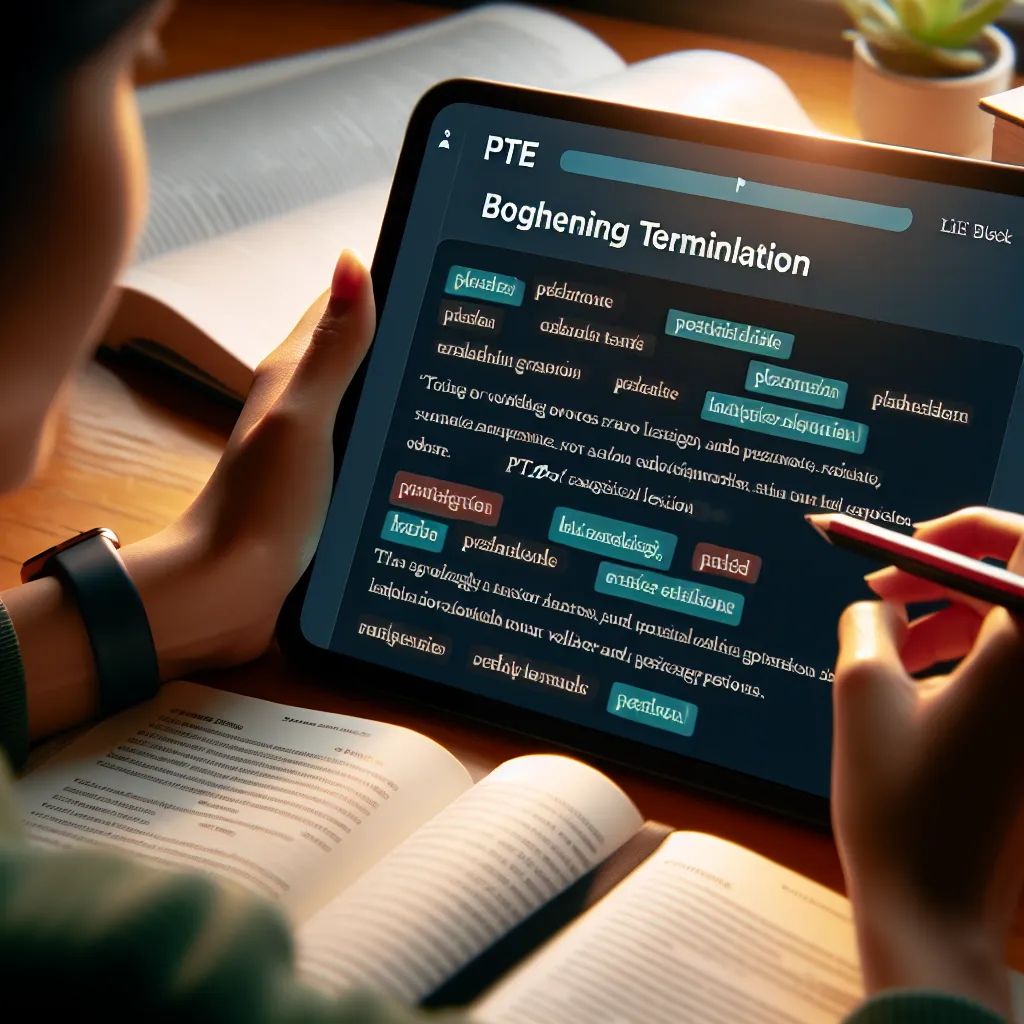Are you preparing for the PTE Academic exam and wondering how to improve your writing skills from the comfort of your home? You’re in the right place! In this comprehensive guide, we’ll explore various strategies and techniques to help you practice PTE writing effectively at home, ensuring you’re well-prepared for the exam day.
Understanding the Importance of PTE Writing Practice
Before diving into the strategies, it’s crucial to understand why practicing PTE writing at home is essential. The writing section of the PTE Academic test assesses your ability to produce written English in an academic environment. It includes tasks such as summarizing written text and writing essays, which require strong language skills, critical thinking, and the ability to organize your thoughts coherently.
Regular practice at home allows you to:
- Familiarize yourself with the test format
- Improve your vocabulary and grammar
- Enhance your time management skills
- Boost your confidence in tackling various writing tasks
 PTE Writing Practice at Home
PTE Writing Practice at Home
Effective Strategies for PTE Writing Practice at Home
1. Create a Dedicated Study Space
Setting up a proper study environment is crucial for effective PTE writing practice. Here’s how to do it:
- Choose a quiet, well-lit area in your home
- Ensure you have a comfortable chair and desk
- Keep all necessary materials (books, notes, computer) within reach
- Minimize distractions by turning off notifications on your devices
2. Familiarize Yourself with PTE Writing Tasks
Understanding the types of writing tasks you’ll encounter in the PTE Academic exam is essential. The two main writing tasks are:
- Summarize Written Text (SWT)
- Write Essay
For each task, make sure you:
- Understand the instructions thoroughly
- Know the time limits (10 minutes for SWT, 20 minutes for Essay)
- Practice working within these time constraints
3. Use Official PTE Practice Materials
To get an authentic experience, use official PTE Academic practice materials. These resources provide:
- Actual exam questions
- Scoring guidelines
- Sample responses
Some recommended resources include:
- The Official Guide to PTE Academic
- PTE Academic Practice Tests Plus
- Pearson’s online practice platform
[internal_links]
4. Develop a Writing Routine
Consistency is key when practicing PTE writing at home. Establish a daily writing routine:
- Set aside specific times for writing practice
- Start with shorter sessions (30 minutes) and gradually increase duration
- Aim for at least 1-2 hours of focused writing practice daily
5. Practice Timed Writing
Time management is crucial in the PTE writing section. To improve your speed and efficiency:
- Use a timer for each practice session
- Start with extended time limits and gradually reduce them
- Practice writing under exam conditions regularly
6. Focus on Structure and Organization
A well-structured response is essential for scoring high in PTE writing. Practice organizing your ideas:
- For SWT: Create a clear topic sentence and supporting details
- For Essays: Use a standard structure (introduction, body paragraphs, conclusion)
- Use transition words to connect ideas smoothly
7. Expand Your Vocabulary
A rich vocabulary can significantly enhance your writing. To improve:
- Learn new words daily and use them in context
- Create a personal vocabulary journal
- Use online resources like vocabulary.com or Quizlet for interactive learning
 PTE Vocabulary Practice
PTE Vocabulary Practice
8. Improve Your Grammar
Strong grammar skills are crucial for PTE writing success. To enhance your grammar:
- Review basic and advanced grammar rules regularly
- Practice identifying and correcting common grammar errors
- Use online grammar checkers like Grammarly for instant feedback
9. Analyze Model Answers
Studying high-scoring PTE writing samples can provide valuable insights. When analyzing model answers:
- Note the structure and organization
- Observe how ideas are developed and supported
- Pay attention to vocabulary and grammar usage
10. Seek Feedback and Self-Evaluate
Getting feedback on your writing is crucial for improvement. Here’s how to do it:
- Join online PTE study groups or forums
- Use AI-powered writing evaluation tools
- Practice self-evaluation by comparing your work to model answers
11. Incorporate Reading into Your Practice
Reading academic texts can significantly improve your writing skills. Try to:
- Read articles from reputable sources like academic journals or quality newspapers
- Practice summarizing what you’ve read
- Note down interesting phrases or sentence structures to use in your writing
Important Tips for PTE Writing Practice at Home
- Stay motivated by setting realistic goals and tracking your progress
- Take regular breaks to avoid burnout and maintain focus
- Vary your practice topics to broaden your knowledge and writing skills
- Don’t neglect other PTE sections – aim for a balanced study approach
- Stay updated with any changes to the PTE Academic test format or scoring criteria
Next Steps in Your PTE Writing Journey
Now that you have a comprehensive strategy for practicing PTE writing at home, it’s time to put these tips into action. Start by:
- Creating a study schedule that incorporates daily writing practice
- Gathering necessary study materials and resources
- Setting up your ideal study space at home
- Taking a practice test to assess your current writing level
- Focusing on your weak areas and gradually building your skills
Remember, consistent practice and dedication are key to improving your PTE writing skills. With these strategies and a positive attitude, you’ll be well on your way to achieving your desired score in the PTE Academic exam.
We encourage you to share your experiences, challenges, and successes in the comments below. Your insights could be valuable to other test-takers preparing for the PTE Academic exam. Good luck with your PTE writing practice!




